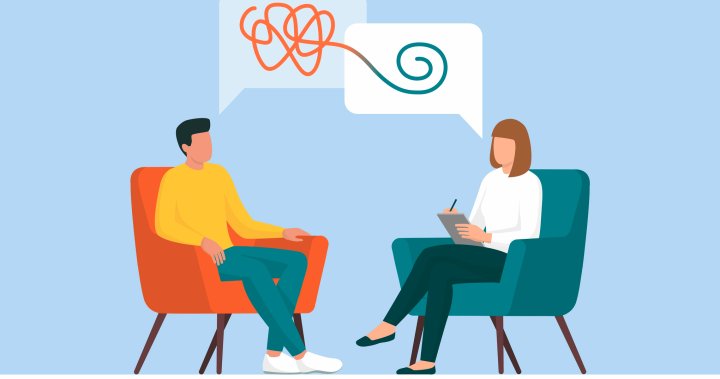Canada is getting a new ministry tasked with tackling the thorny issues of mental health and addictions across the country.
But experts are warning the gesture will be hollow if the government doesn’t make concrete policy changes to back it up.
“(The ministry) needs to have real resources — financial resources, as well as human resources — as well as a very clear mandate to address some of the major issues confronting our country now,” Bernie Pauly, a University of Victoria professor and scientist with the Canadian Institute for Substance Use Research, said.
“Specifically the overdose crisis.”
Prime Minister Justin Trudeau named Carolyn Bennett, who previously served as minister of Crown-Indigenous relations, as the first minister of mental health and addictions during his cabinet swearing-in on Tuesday.
Read more:
Trudeau unveils new cabinet with 9 new faces, major shake ups to top jobs
In that role, she’ll likely be leading the charge of rolling out the promised $4.5 billion in new federal health transfers to the provinces and territories over the next five years.
Those transfers, the Liberal platform pledged, would be aimed at providing free, accessible mental health services.

The creation of the ministry is a good “first step,” according to experts like Karen Urbanoski, an associate professor at the University of Victoria.
But, she warned, “we want to see some concrete action, in addition to there being an announcement of a minister.”
The COVID-19 pandemic has created the perfect storm for a surge in opioid overdoses. Over 1,700 opioid overdoses occurred in the first three months of 2021, according to the government of Canada’s own figures. That was approximately 20 deaths per day, representing a 65 per cent increase from the first three months of 2020 — just before COVID-19 hit.
Read more:
The opioid crisis is killing Canadians, but where is the political will to solve it?
“People have been in situations where they’re more isolated, they’re more likely to use, a lot less services (are) available because (of) … COVID restrictions,” Pauly said.
Bennett and the Liberal government can help change this problem by decriminalizing drugs at a federal level, according to Pauly. He says this would help ensure a safe supply.
“If you look historically, during alcohol prohibition, there were so many harms created and people dying of unsafe sources of alcohol. So we made alcohol a legal substance,” she said.
“You can think of it like if we didn’t have regulations for food safety.”

Two other important steps in tackling both mental health and addictions issues are “the need for pharmacare” and access to counselling, according to Urbanoski.
“It’s concerning that many Canadians do not have counseling coverage through their health benefits,” Urbanoski said.
As things stand now, some of the “most basic services are not publicly funded,” according to Lori Spadorcia, who is the vice-president of public affairs and partnerships at the Centre for Addiction and Mental Health (CAMH).
“We need to get to a place where that is the case,” she said.
“We’ve got evidence-based therapies that are life-saving services that are not consistently funded across the country and therefore not equitable (and) accessible. So these are just things we need to move forward on once and for all.”
Pitfalls of a new portfolio
The government has yet to reveal any details about the new ministry, aside from its name. The fresh portfolio plucks mental health and addiction from the health minister’s purview and gives them the new minister’s full attention.
However, that’s something experts warned has worked out poorly in the province that already tried it: British Columbia.
“The ministry of health, which often holds the most resources, kind of becomes less involved in responding to things like the overdose crisis, and yet it is still ultimately about health,” said Pauly.
Read more:
Mental health must be part of curriculum as students cope with COVID-19 pandemic, say experts
But by handing Bennett the title of associate minister of health, the government has shown it is conscious of keeping the mental health and addictions portfolio under the health ministry’s umbrella, according to Spadorcia.
“We want to ensure that mental health becomes a pivotal part of the health-care system,” she said.
Treasury Board President Jean-Yves Duclos has been tapped to take over as health minister from Patty Hajdu, who became the face of the federal government’s response in the early days of the COVID-19 pandemic.
While he might have his hands full with the COVID-19 pandemic and health transfer negotiations with provinces, Duclos will also need to keep a close eye on the mental health portfolio, according to Spadorcia.
“That connection is really critical,” she said.

In fact, the whole government will have to work together closely to be effective on this file, Spadorcia said. The ministers of housing, diversity and inclusion, seniors, and families all have a role to play in addressing mental health challenges.
“We’ll be looking for this cabinet to be working tightly together on the mental health file,” she said.
“There are so many intersections here and so many critical components to helping to ensure that Canadians are healthy and mentally healthy.”
The time for them to start taking this action is now, according to the experts.
“It’s way past time,” Spadorcia said.
“Canadians are talking about mental health more. It’s time to move to action. And I think what’s at stake is the health and well-being of our society.”
© 2021 Global News, a division of Corus Entertainment Inc.














































